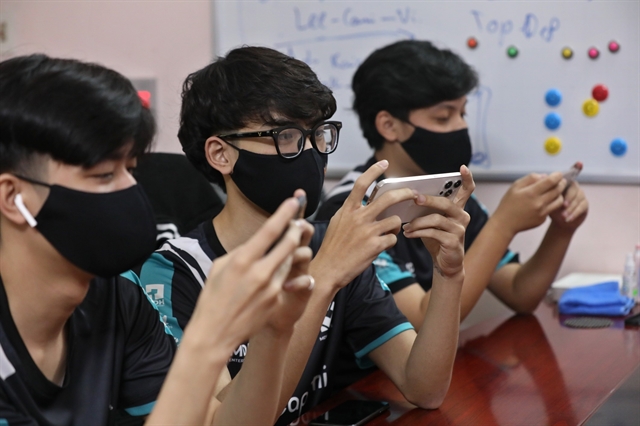In Southeast Asia, Viet Nam takes a large share of the pie with 54.6 million gamers, raking in $507 million in 2022.

The gaming industry, once derided as an exclusive domain of bone-idle youngsters, has transformed into a colossus in recent years.
Newzoo's report shows that the global gaming industry was worth US$184.4 billion by December 2022, half of which was taken by the mobile gaming segment.
In Southeast Asia, Viet Nam takes a large share of the pie with 54.6 million gamers, raking in $507 million in 2022. The figure is expected to hit $1 billion in the next five years, distributed among about 150 game producers and 400 startups.
Le Quang Tu Do, director of the Authority of Broadcasting and Electronic Information, Ministry of Information and Communications (MOIC), said Vietnamese game producers were expanding their reach beyond domestic markets and had begun to gain ground internationally.
Their success comes from a labour pool full of talented and hard-working programmers, who can single-handedly create a game without any help from others. That versatility allows the producers to trim headcounts and run more efficiently.
"In fact, many successful games in Viet Nam have been developed by a team of between two to three persons," said Do.
However, Do was concerned that over the past ten years, the domestic gamer community was unable to keep up with the industry's growth pace, leading to the situation that many game developers have to turn to foreign markets for sales.
He also believed that the Ministry of Finance's (MOF) proposal to impose a Special Consumption Tax (SCT) on game products would hold back the community further as additional costs to producers might be passed on to gamers.
The director revealed that MOIC was drafting a plan under which a league of game producers would be formed with the aim of reducing public prejudice against online gaming and attracting more foreign investment into the sector.
Topebox CEO Thai Thanh Liem remarked that most Vietnamese game studios were tapping into the lucrative potential of hyper-casual games, which have a minimalistic interface and simple gameplay.
However, there are not many in-app purchases for hyper-casual games. Most of their monetisation is done through ads, which are designed in alignment with the game plots.
VTC Managing Director Nguyen Ngoc Bao revealed that the growing popularity of online gaming has sparked the emergence of eSport, which is growing by 8.1 per cent annually. By 2025, global eSport viewership could reach 640 million.
That astounding figure indicates that game sales contribute to only around one-tenth of the industry's revenues, whereas the other nine tenths come from other players in the gaming ecosystem, including viewers.
"They are a gold mine for game producers," said Bao.
Despite the fast growth, Viet Nam still lags behind Thailand in terms of gaming revenues. The latter has 38.3 million gamers but made over $760 million last year. The revenue gap is forecast to substantially widen as of 2025.
Experts underlined two key factors behind the fast-paced Thai gaming industry, namely the presence of producer associations and programmer communities, and a developed infrastructure system.
MOF is seeking comments on a revised version of the Law on Special Consumption Tax, which would hold online gaming taxable. Many game producers disapprove of the draft, fearing that a SCT would erode their competitive advantages and trigger a switch among gamers to foreign-made products. — VNS





